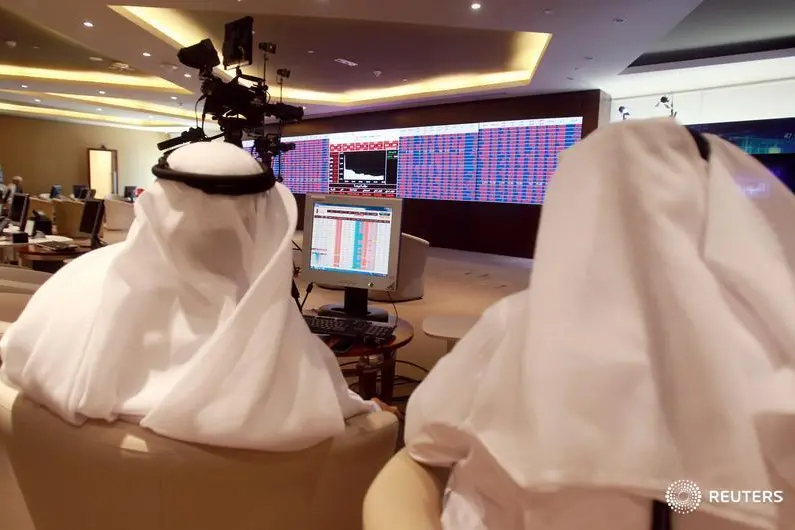PHOTO
Most Middle Eastern stock markets fell on Wednesday, with Saudi Arabia's benchmark index reversing early gains and snapping a nine-day rally.
The index fell 0.2% and Saudi telecom and Banque Saudi Fransi led the losses, down 2.2% and 2.6%, respectively.
Saudi Arabia's inflation rose to 5.7% in January from 5.3% the month before, continuing a rise fuelled by a tripling of value-added tax last year, government data showed.
The economy of the world's largest oil exporter contracted last year, but data suggest the rate of decline slowed in the third quarter as some COVID-19 restrictions were lifted, and GDP is expected to return to growth this year.
The Qatari index lost the most among the major indices, ending the session 1.1% lower. The index marked its steepest fall in nearly three months.
Qatar National Bank, the largest lender in the Gulf and Africa fell 2.4%, its third consecutive session of losses.
Trade and travel restrictions continue to pressure the energy-rich region, said Daniel Takieddine, market analyst at FXPrimus.com.
Dubai's main share index ended 0.6% lower, hit by a 1.5% fall in Dubai Islamic Bank (DIB).
In the previous session, DIB, the United Arab Emirates' largest sharia-compliant lender, slid 2.6% after reporting a sharp decline in full-year profit.
Among others, logistics firm Aramex retreated 3.5%, to become the biggest faller on the index.
In Abu Dhabi, the index fell 0.5% in its biggest daily percentage loss so far this month as financial and communication services stocks weighed on sentiment.
Telecoms firm Etisalat finished 0.8% down.
Outside the Gulf, Egypt's blue-chip index retreated 1%, with 27 of its 30 stocks declining. The country's largest lender Commercial International Bank fell 1%.
(Reporting by Ateeq Shariff and Tanvi Mehta in Bengaluru; Editing by Hugh Lawson) ((AteeqUr.Shariff@thomsonreuters.com; +918061822788;))





















